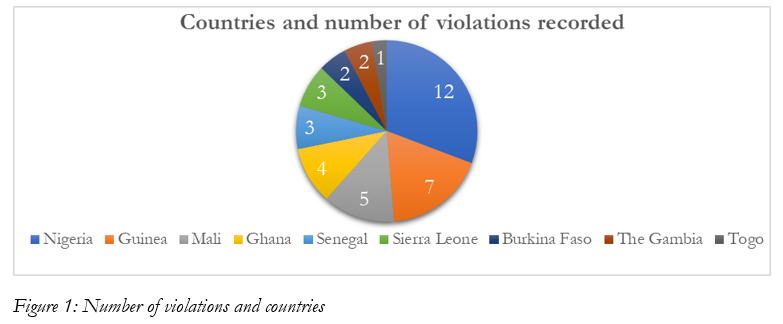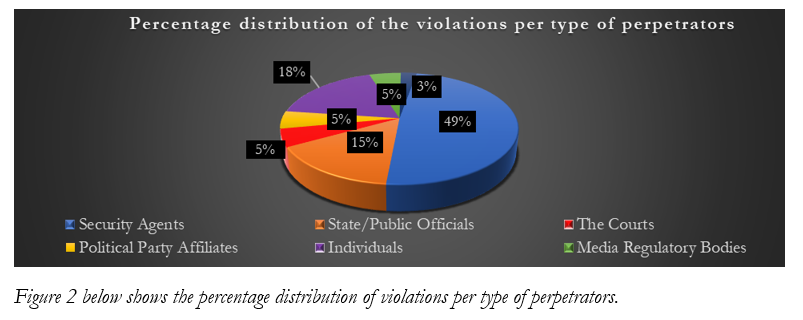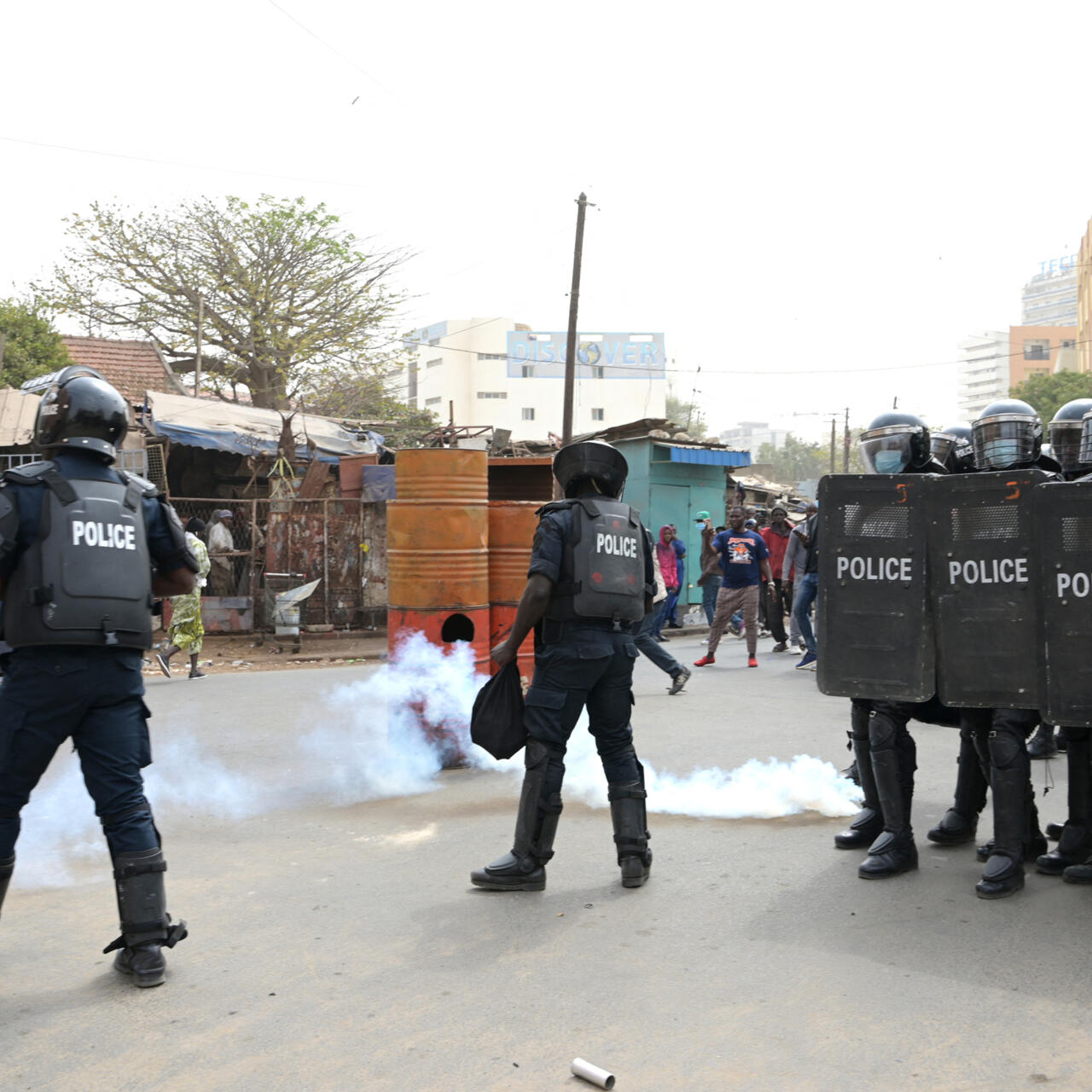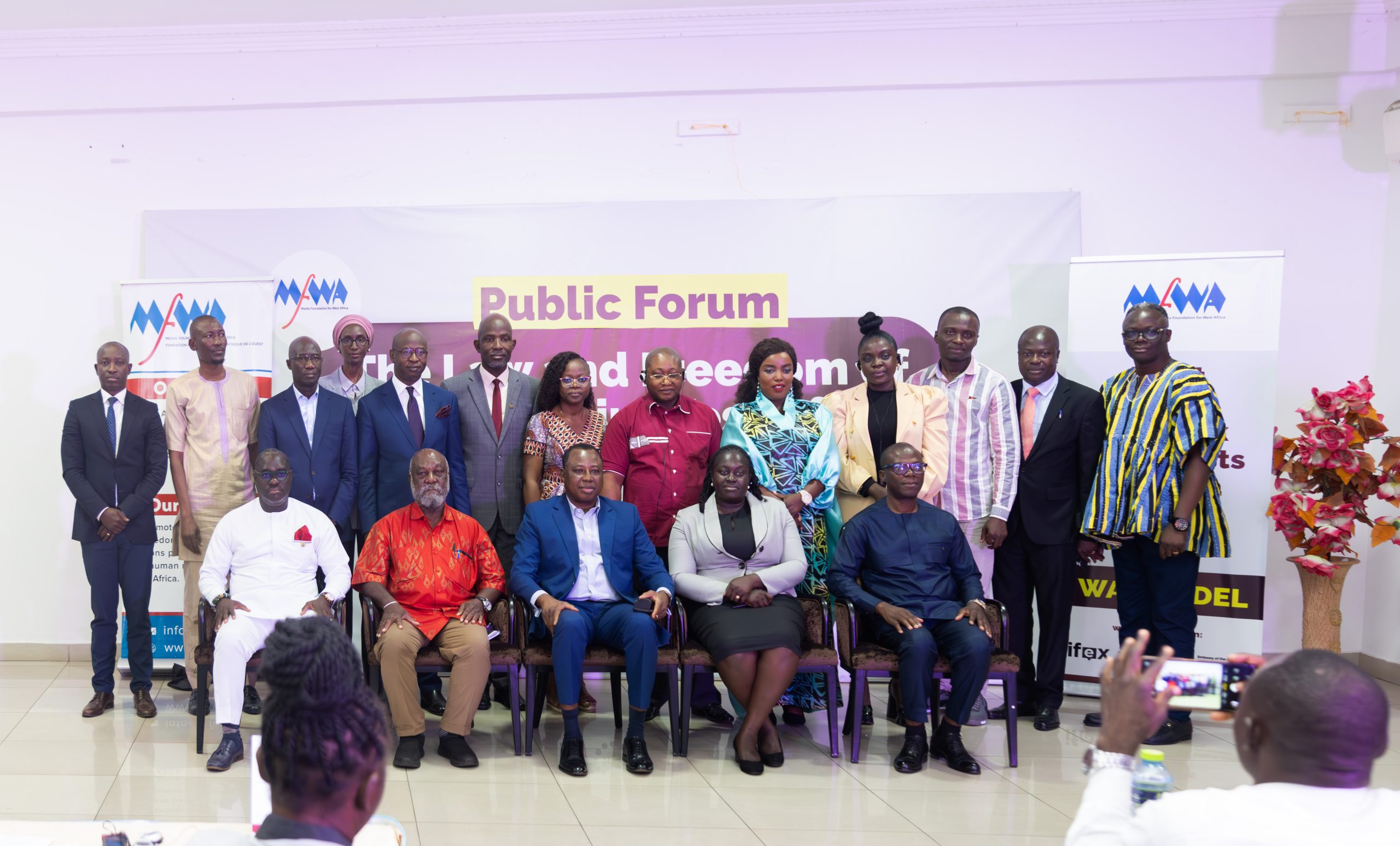The MFWA’s monitoring report for the fourth quarter of 2023 demonstrates a concerning trend of government interference, attacks on journalists, legal harassment, and media censorship, amidst endemic impunity in the region.
A total of thirty-nine (39) incidents of freedom of expression violations were recorded. The figure is eight per cent (8%) higher than that of the preceding quarter (July-September 2023) which stood at 36.
Nigeria recorded twelve (12) violations, the highest number of violations during the quarter. Guinea followed with seven (7) violations, while Mali and Ghana recorded five (5) and four (4) violations respectively. Senegal and Sierra Leone recorded three (3) violations each. Burkina Faso and The Gambia each recorded two (2) violations, while Togo recorded one (1) violation.

The quarter was marred by a wave of arrests and detentions, physical attacks, and censorship in the subregion. The most serious incidents of violations occurred in Mali where a deadly attack on a convoy of journalists left one dead, another kidnapped and others injured. Another grievous violation was recorded in Guinea with the internet heavily restricted on social media platforms in the country.
In one of the numerous incidents in Nigeria, Major General Bello Mohammed Abdullahi, the Niger State Commissioner of Homeland Security, on November 24, 2023, assaulted Mustapha Batsari, a journalist with Voice of America (VOA). The altercation took place at the Government House in Minna where Batsari had gone to seek information from the Commissioner regarding a crisis in Beji, Bosso Local Government Area.
The following day, November 25, 2023, numerous media outlets in Guinea encountered disruptions, including jammed radio signals and the unavailability of popular social media platforms like WhatsApp, Facebook, Instagram, and TikTok without a VPN. FIM FM and Djoma FM both reported signal interference on the same day.
In terms of distribution, twenty-five (25) of the violations were targeted at journalists and media workers, while nine (9) were targeted at media organisations. Four (4) of the violations were directed at citizens with one (1) targeted at an activist. Seven (7) different types of perpetrators were responsible for the thirty-nine (39) violations.
Security agents accounted for nineteen (19) violations, representing forty-nine per cent (49%) of the total. State/public officials and individuals carried out six (6) violations (15%) and seven (7) violations (18%) respectively. Political party affiliates, the courts and media regulatory bodies each accounted for two (2) violations (5%). The remaining violation was attributed to media owners/managers which recorded one violation (1) representing 3%.

This quarter’s freedom of expression monitor also features other important freedom of expression and digital rights developments in the region, including redresses for violations and recommendations to key stakeholders.
Access the full report here.






